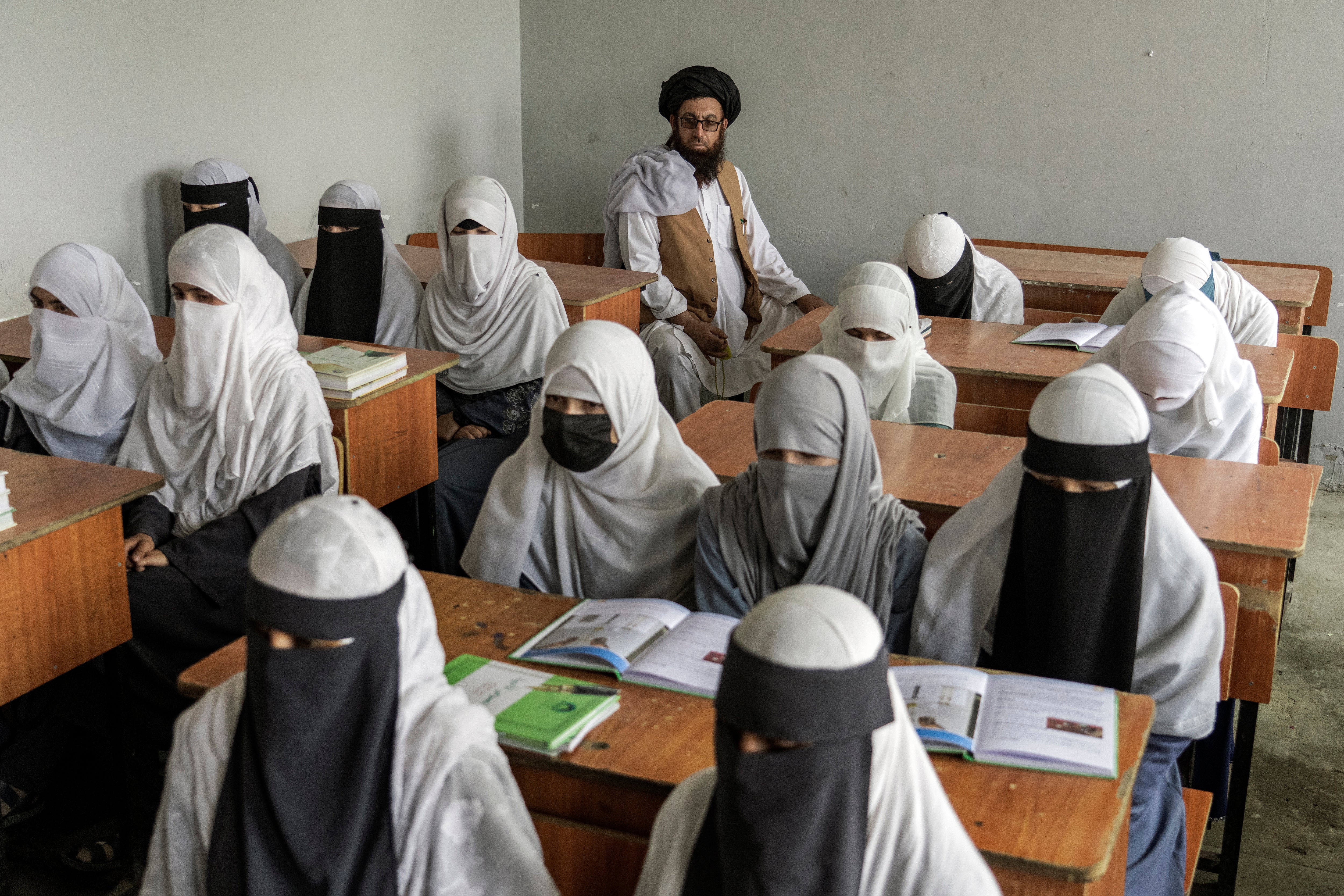Afghan schoolgirls are finishing sixth grade in tears. Under Taliban rule, their education is over
Afghan schoolgirls are weeping as they finish sixth grade, knowing their education is over

Bahara Rustam, 13, took her last class at Bibi Razia School in Kabul on December 11 knowing it was the end of her education. Under Taliban rule, she is unlikely to step foot in a classroom again.
In September 2021, a month after US and NATO troops withdrew from Afghanistan following two decades of war, the Taliban announced that girls were barred from studying beyond sixth grade.
They extended this education ban to universities in December 2022. The Taliban have defied global condemnation and warnings that the restrictions will make it almost impossible for them to gain recognition as the country’s legitimate rulers.
Last week, UN special envoy Roza Otunbayeva expressed concern that a generation of Afghan girls is falling behind with each day that passes.
Last week, an official in the Education Ministry said Afghan girls of all ages are allowed to study in religious schools known as madrassas, which have traditionally been boys-only. But Otunbayeva said it was unclear if there was a standardized curriculum that allowed modern subjects.
Bahara is holding onto her education and pores over textbooks at home. “Graduating (from sixth grade) means we are going to seventh grade,” she said. “But all of our classmates cried and we were very disappointed.”
There was no graduation ceremony for the girls at Bibi Razia School.
In another part of Kabul, 13-year-old Setayesh Sahibzada wonders what the future holds for her. She is sad she can’t go to school anymore to achieve her dreams.
“I can’t stand on my own two feet,” she said. “I wanted to be a teacher. But now I can’t study, I can’t go to school.”
Analyst Muhammad Saleem Paigir warned that excluding women and girls from education will be disastrous for Afghanistan. “We understand that illiterate people can never be free and prosperous,” he said.
The Taliban have barred women from many public spaces and most jobs, all but confining women to their homes.
Bookmark popover
Removed from bookmarks